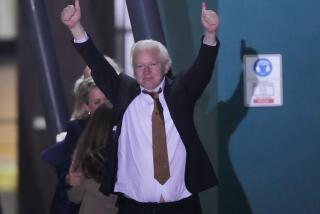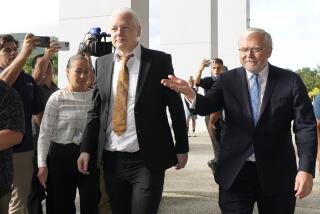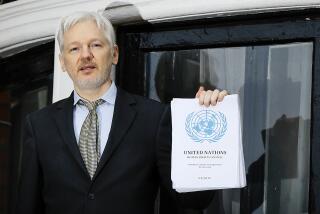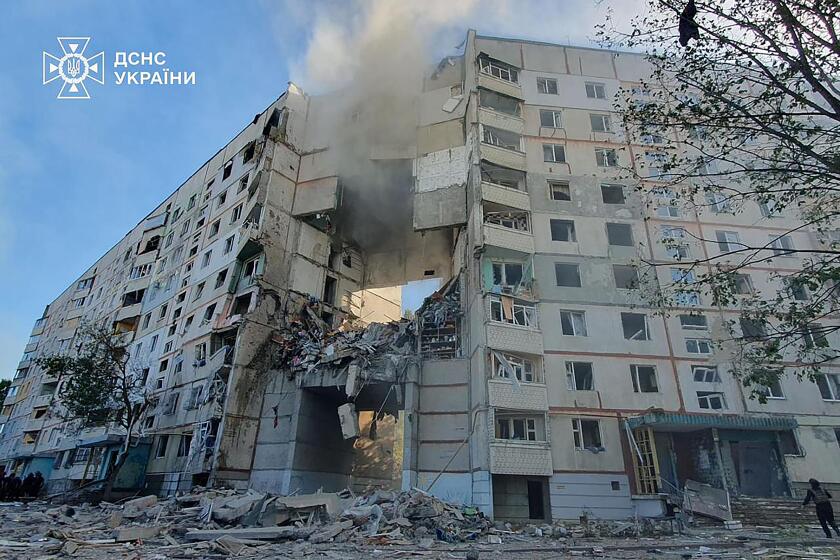Manning leaks horrified State Department, U.S. diplomat says
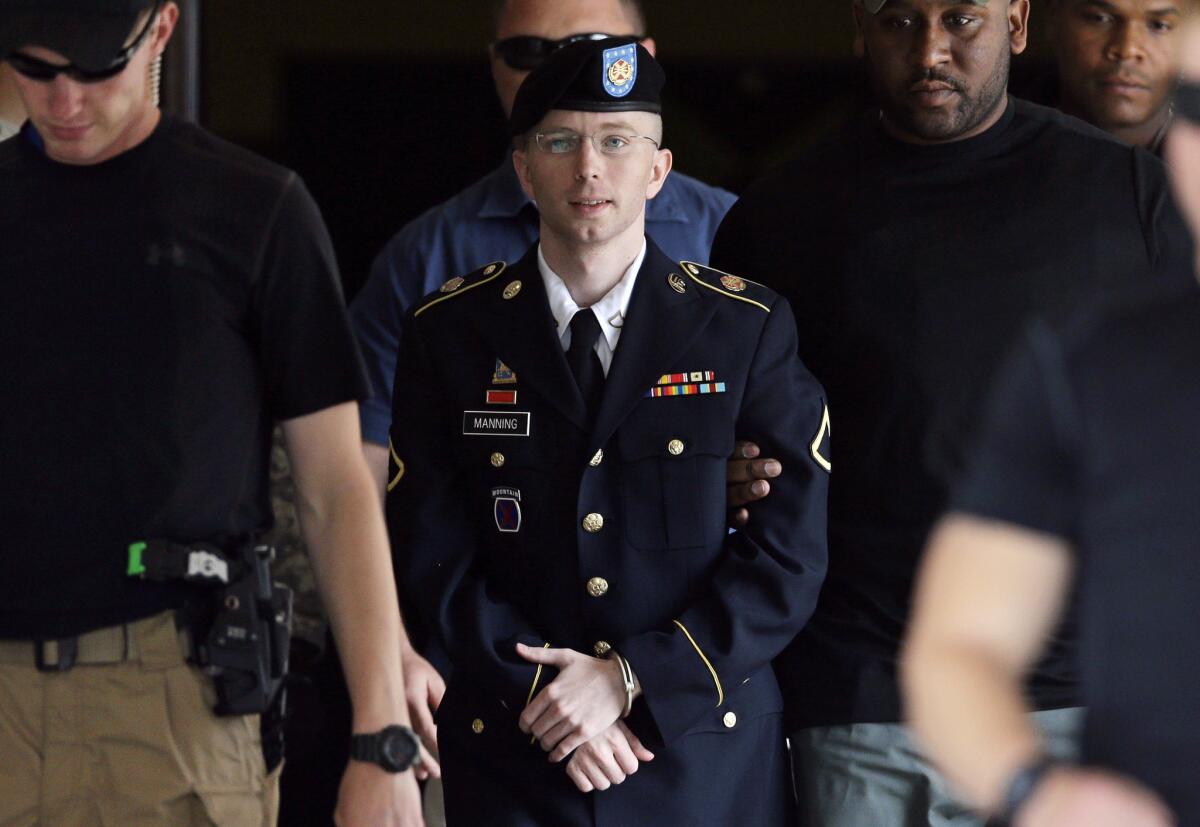
Ft. MEADE, Md. — A career U.S. diplomat testified Thursday that Army Pfc. Bradley Manning’s unauthorized release of classified material horrified officials at the State Department and jeopardized relationships with U.S. allies overseas, even as Julian Assange, founder of WikiLeaks, complained that President Obama has “betrayed” his campaign pledge to protect whistle-blowers.
Elizabeth Dibble, principal deputy U.S. assistant secretary of State for Near Eastern affairs, was called to testify about the damage to the State Department after Manning in 2010 gave the anti-secrecy organization WikiLeaks more than 700,000 diplomatic cables, combat reports and other highly classified data.
Asked about the response at the department’s headquarters in Washington’s Foggy Bottom neighborhood, Dibble said, there was instant “horror and disbelief that our diplomatic communications had been released and were available on public websites for the world to see.”
PHOTOS: 2013’s memorable political moments
She said U.S. embassies abroad are the “eyes and ears of the U.S. on the ground there,” and that internal working papers from Washington or inside the embassies should never be shared with other countries, especially as the U.S. attempts to shape its foreign policy. Leaking internal documents, she said, jeopardizes efforts by the U.S. to build trust with other nations.
If there is not that confidentiality, she said, a foreign official or country “will be burned.”
Under cross-examination by defense attorneys, Dibble was asked about a statement from former Secretary of Defense Robert Gates that government secrets often “leak like a sieve.” She said that was not true. “It makes a good sound bite,” she said, “but I don’t agree with it.”
Manning was acquitted Tuesday of the most serious charge of aiding the enemy but convicted of espionage for releasing the secret material. In the sentencing phase of the trial now underway at Ft. Meade, the judge, Army Col. Denise Lind, is weighing whether he should serve a maximum of 136 years.
Assange, in his first statement since the verdict, posted on his WikiLeaks website, said, “Manning’s alleged disclosures have exposed war crimes, sparked revolutions, and induced democratic reform. He is the quintessential whistle-blower.”
He also repeated his complaints about Obama initiating “more espionage proceedings against whistle-blowers and publishers than all previous presidents combined,” despite a 2008 campaign statement that Assange said “praised whistle-blowing as an act of courage and patriotism.” He added, “that platform has been comprehensively betrayed.”
“The U.S. 1st Amendment states that ‘Congress shall make no law ... abridging the freedom of speech, or of the press,’” Assange added. “What part of ‘no’ does Barack Obama fail to comprehend?”
Follow Politics Now on Twitter and Facebook
More to Read
Sign up for Essential California
The most important California stories and recommendations in your inbox every morning.
You may occasionally receive promotional content from the Los Angeles Times.
